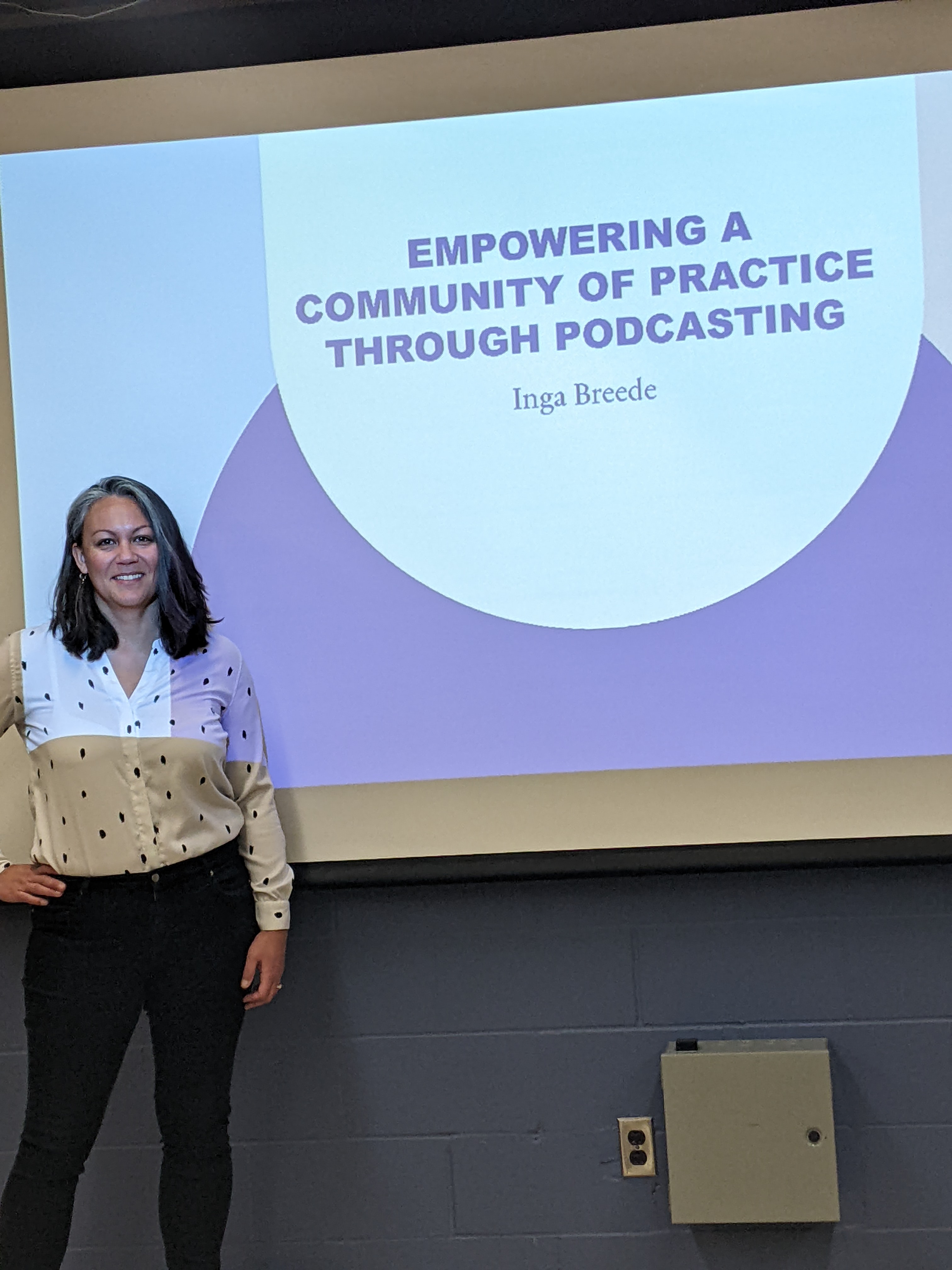PodCamp 2023: Key Takeaways from the "Unconference"
ETO member, Inga, shares her key takeaways after attending and presenting at PodCamp Toronto.
On February 25 to 26, the 15th annual PodCamp Toronto returned to Toronto Metropolitan University (TMU). The free event, also referred to as an “unconference,” invites people with knowledge and an interest in podcasting to meet at the Ted Rogers School of Media at TMU, where over 20 different sessions were available to attend. This year, I was both an attendee and presenter which gave me the opportunity to not only engage with the podcasting community (in person!) but also gain new insight on how to leverage this digital medium for teaching and learning. Here are my key takeaways from the two sessions I attended along with some added insights from conversations that were sparked in my own session.
Voices Inside: Everything is Everything
Presented by Anthony Marco, Educator and Podcaster
In this session, the presenter addressed the importance of focusing on podcasting as an art and craft and less so on generating analytics and ad-revenue.
- As content creators, everything we do is a craft. It becomes “art” when you no longer have to think about how to do the craft and simply do it.
- An engaging podcast doesn’t necessarily need to be overly produced with scripts and music sound beds.
-
Many attendees agreed that their favourite podcasts were unscripted and more conversational because it felt more authentic.
Giving Birth to Your Show/Project (aka, Your Baby!)
Presented by Arys Dejan, Content Creator
This session was much more informal, with the speaker encouraging attendees to sit in a semi-circle and share their questions, ideas, and struggles with developing their own content. The intent was to get people thinking about how to get started on a podcast project that they’ve been stuck on.
- Regardless of how experienced a person is in the craft, the biggest challenge with a new project is often simply getting it started.
- It’s important to immerse yourself in the medium which you are interested in using to communicate. It’s the best way to figure out what works and doesn’t work for your particular content.
-
You should aim to produce a batch of content before releasing an episode. This will give you enough runway to release content regularly with still enough time to produce more content later on.
Empowering a Community of Practice through Podcasting
Presented by Me!
My session focused on the podcast series I produce as part of MADE, a Community of Practice (CoP) I started at U of T to bring together staff and faculty with a background or interest in media and design in education (learn more about MADE here). The podcast features special guests who are experts in their fields, both in academics and industry, who share their expertise in everything from instructional design, media accessibility to media production. This has proven to provide incredible insight and new ideas that our community members have been able to apply in the work they do.
The key takeaways from my session included:
- There are different strategies that can be used to learn more about the members of the community.
- An important element of MADE is to engaging with industry experts who can provide new insight on specific topics.
- I shared my experience of learning how to make every interview question count.
- It's integral to involve the community to gather ideas on topics and guests and to encourage engagement during the interviews.
I encouraged attendees to ask questions during the presentation and some insightful conversations came out of it.
- 3 attendees mentioned that they were part of a CoP in their workplace and also met virtually. However, none of them currently use podcasting as a form of communication.
- There was a general agreement that meaningful relationships could be made in a virtual community, if you can find the right CoP to participate in.
- A simple and polite email introduction is often the best way to find guest speakers.
- Podcasting was especially helpful for people who were unable to do their other passions during the COVID lockdown. A perfect example – my kids’ curling coach just happened to be at PodCamp and attended my session. I was surprised to see him there and learned that during lockdown when curling events could not happen, he turned to podcasting to talk about what it’s like to coach kids curling!

Final Thoughts
Overall, I really enjoyed my experience at PodCamp. It was well organized but also informal enough that it wasn’t intimidating to attend (or present at) in person. The podcasting community that came together was very friendly and approachable and I highly recommend it for anyone who interested in learning more about podcasting.
Interested to learn how podcasting can be used in the classroom? Have a listen to one of the latest episodes of MADE for U of T, featuring TMU associate professor, Lori Beckstead.
